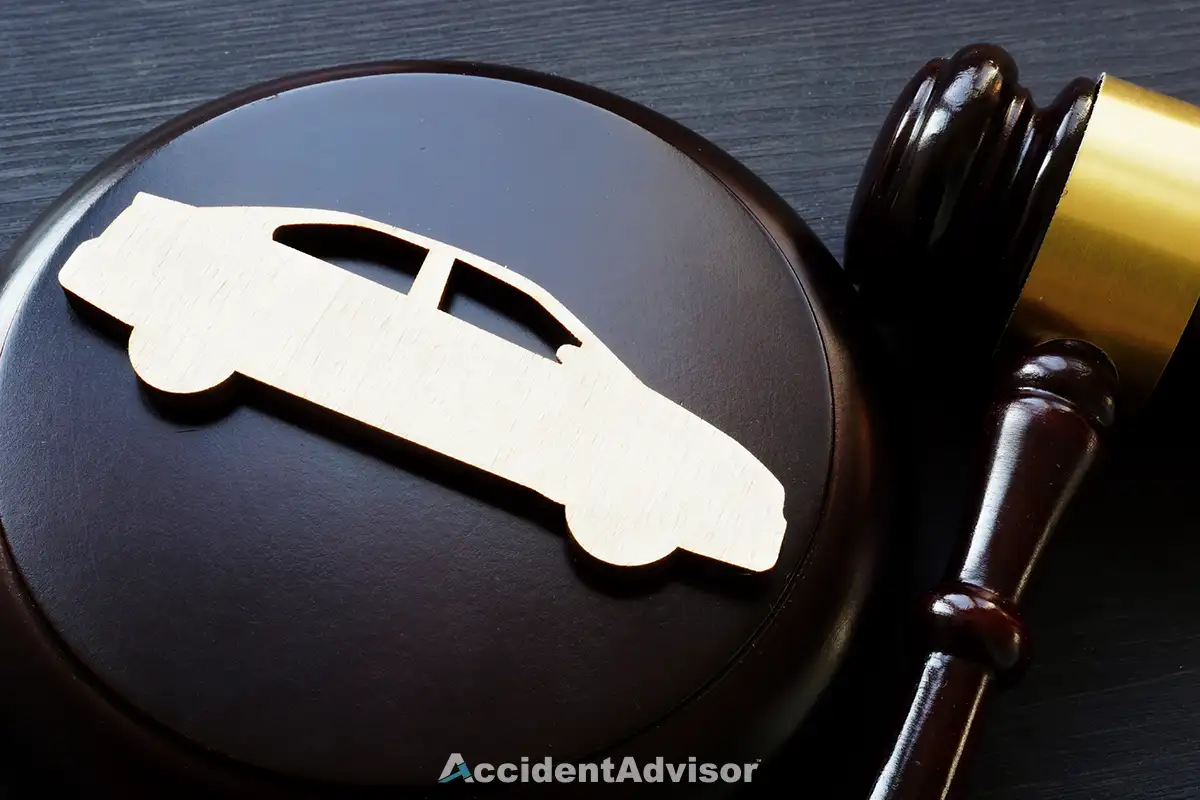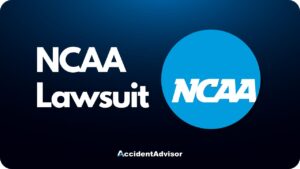If you were involved in a car accident but your insurance policy did not pay you a satisfactory settlement, you may consider filing an auto accident lawsuit. Before you leap into filing a personal injury case, however, you should know the difference between a claim and a lawsuit, the timeline for filing a lawsuit, and how to get the compensation you deserve.
Follow this guide to auto accident lawsuits to learn about your potential eligibility for compensation as well as how to win your case. You should also contact an experienced personal injury attorney to learn more.
Table of Contents
- Auto Accident Claims vs Auto Accident Lawsuits
- When to File an Auto Accident Lawsuit?
- How Do Auto Accident Lawsuits Work?
- How Long Do Auto Accident Lawsuits Take?
- Should You Sue an Uninsured Driver after an Auto Accident?
- How is the Plaintiff’s Attorney in a Car Accident Lawsuit Usually Paid?
- Hiring a Lawyer for an Auto Accident Lawsuit
- Conclusion
Auto Accident Claims vs Auto Accident Lawsuits
An auto accident claim is a case with your insurance company or with the insurer of the other driver while an auto accident lawsuit is a personal injury claim that you file against an individual or company for compensation. In this case, you would file against the at-fault driver.
While these two cases sound similar, the process of filing an auto accident claim is different than that of an auto accident lawsuit.
Auto Accident Insurance Claims
The main difference between a claim and a lawsuit is that in an auto accident insurance claim, the two parties negotiate the settlement depending on different factors. These include the insurance coverage of both drivers, the evidence collected by police, and the negotiating process between the drivers’ representatives and the insurance adjusters.
Filing a claim avoids the costs of going to court and often expedites the settlement for the victims. If the claim is settled, the insurance company will pay the damages without a trial. Despite this, insurance companies can take a long time to settle in some cases.
Negotiations with an insurer are also less arduous than court proceedings, which can often take months or even years. Claims allow the victims of car accidents to calculate their settlements with their attorneys so that the payout reflects the damages.
Auto Accident Lawsuits
In auto accident lawsuits, none of these things are true since the case must go to court before a judge or jury and receive a verdict. Their judgment is final, unlike the negotiations with the insurer. Additionally, the verdict could deny you all compensation for your injuries if you were at fault.
However, a judge could award money for additional damages not even covered by insurance. Despite this, lawsuits are often more costly than claims and usually take much longer to resolve.
When to File an Auto Accident Lawsuit?
Despite its high costs and time commitment, you may consider filing an auto accident lawsuit if your settlement with the insurance company was not satisfactory. The lawsuit will be directed against the at-fault driver, which means that you should be confident that you were not at-fault for the accident before proceeding with the car accident lawsuit.
You should always first try to file a claim with your insurance company as well as potentially with the insurer of the at-fault driver. You will have to pay the deductible on your policy at this point, but you can potentially get it refunded as part of your settlement.
If this settlement doesn’t cover your medical expenses or pain and suffering, then you can proceed to a personal injury lawsuit.
How Do Auto Accident Lawsuits Work?
An auto accident lawsuit is a personal injury lawsuit against the at-fault driver after the insurance company either refuses to pay for your medical and property damage or does so unsatisfactorily. Importantly, the lawsuit is not against either insurance company. Despite this, the at-fault driver’s insurer will provide a lawyer for their driver since they will have to cover the settlement if you win your case.
If you decide to represent yourself, you should learn general civil court procedures, including the rules of civil procedure and rules of evidence for your state. Each state’s laws in personal injury proceedings are different, so you should familiarize yourself with any state-specific regulations that could be relevant to your case.
File a Complaint
After contacting both the insurers and an attorney, your next step in advancing your auto accident lawsuit is to file the complaint. This usually happens if the insurer denies your demand letter, which is where you list your demands for monetary compensation following the accident.
The complaint is not to the insurers but to the court system of your state. Complaints outline the evidence for compensation that you summarized in your demand letter to the insurers but then pivot to requesting a verdict from the state court system instead.
What to Include in the Complaint
Your complaint should not be complicated or detailed but rather a simple explanation for why your case should be brought to legal proceedings. If you overreach or exaggerate in your complaint, this could be used as evidence against you in the trial.
Stick to the facts and be specific about your claims so that this does not happen. Review your state’s pleading requirements to make sure your complaint is legally viable. Using them, list the claims you plan to make in factual terms with supporting evidence where needed.
Where to File the Complaint
Your complaint needs to be filed in a state court, preferably the one nearest to the site of the accident. Note that each state has its own statute of limitations that defines how long you have after the accident to file a lawsuit.
Additionally, if you hope to have a jury trial, you likely need to file a separate document pleading for one.
Serve the Complaint
Once the complaint has been filed, it needs to be served, which means the party you’re suing must receive the documents, along with a court summons. This can happen either in person or by mail. Your attorney will know how and when to serve the complaint to the at-fault driver.
Discovery Phase
The discovery phase in an auto accident lawsuit is when both legal sides learn about the claims that the other side is making. In this phase, your legal team will learn the strengths of your case, as well as its potential weaknesses. You’ll also learn about the evidence that the other side will use in its defense.
Discovery Information
Discovery information includes anything that is required to be disclosed according to the court’s rules. This information will already be in discovery and does not need to be requested, including:
- The names and contact information of each person relevant to the claim
- Copies of relevant documents such as medical receipts
- Calculations of monetary damages being claimed
- Copies of any relevant insurance policies
Check with the regulations of your state courts to learn what other information is required discovery information in a car accident lawsuit.
Methods of Discovery
Methods of discovery include written questioning, presentation of relevant documents, mental and physical exams, or admission requests. Anything can be requested so long as it’s relevant to the case and doesn’t fall under confidentiality privileges, such as between an attorney and client or physician and patient.
Civil Trial
Civil trials are those that do not involve criminal activity but settle cases between private citizens. In this case, your lawsuit against the at-fault driver, once your complaint has been filed and the summons delivered, will be set for a civil trial. This is where the discovery will be made, and the evidence presented.
How Long Do Auto Accident Lawsuits Take?
An auto accident lawsuit can take anywhere from several weeks to several years depending on the severity of the claims, the availability of the evidence, and the deliberation of the judge or jury. This time commitment is one of the major disadvantages of a lawsuit since your injuries need to be treated and paid for while all this is going on.
Most cases take at least 6 months while compensation from an insurance claim is usually processed much sooner, sometimes in as little as a month. Additionally, a lawsuit can deny you compensation with no legal recourse while a claim can be negotiated.
Should You Sue an Uninsured Driver after an Auto Accident?
You may want to sue an uninsured driver after an auto accident if they were at fault and your policy’s uninsured motorist coverage is insufficient to cover your expenses. After that part of your policy pays out, your insurer will try to recoup damages from the driver. However, depending on the severity of the accident, this may not cover everything.
Note that an uninsured driver may not be able to afford any settlement that a lawsuit would order them to pay. Unless they have assets that can be used to pay you, it doesn’t make sense to pay the legal fees to argue for a settlement that you’ll probably never receive.
How is the Plaintiff’s Attorney in a Car Accident Lawsuit Usually Paid?
The plaintiff’s attorney in a car accident lawsuit is paid out of the settlement rendered by the at-fault driver’s insurance company if you win. If you don’t win, the plaintiff pays their fees.
This is why it makes a difference to ask your potential legal representatives whether they take cases on the contingency that they only get paid if you win. You don’t want to be stuck with legal fees on top of being denied compensation.
Note that the defendant’s attorney works for the other driver’s insurer. They get paid by the insurance company to represent their driver regardless of the outcome.
Hiring a Lawyer for an Auto Accident Lawsuit
To win an auto accident lawsuit before the judge or jury, you should hire an experienced personal injury attorney who will know how to navigate the complicated process of filing a case in your state. This includes knowing the evidence you need and when to file it in the discovery, when to send the complaints and summons, and how to navigate your state’s legal regulations.
Every state has a slightly different process and different statutes of limitations, so it’s important to file correctly and on time. Search online, your local BAR association, your state’s database, or ask your family and friends to find an attorney that meets your needs.
Conclusion
An auto accident lawsuit can be filed to recoup damages not covered by your insurance policy, if the at-fault driver was uninsured, or if you feel you deserve a bigger settlement for your pain and suffering. However, filing a lawsuit is more complicated than making an insurance claim, so an experienced car accident attorney is a must when assembling your case.
If you’ve been injured in a motorcycle crash, learn about motorcycle accident lawsuits.

Rocky Horton
Author
Rocky Horton is a health and safety expert from Chapel Hill, NC. He is the founder of AccidentAdvisor and has been featured in Forbes, Bloomberg, and other publications. Learn more.













